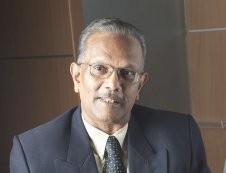
As of 22 April 2009 this website is 'frozen' in time — see the current IFLA websites
This old website and all of its content will stay on as archive – http://archive.ifla.org

As of 22 April 2009 this website is 'frozen' in time — see the current IFLA websites
This old website and all of its content will stay on as archive – http://archive.ifla.org
    Message from the President Kay Raseroka Dear IFLA Member, I am delighted to be able to send this letter of greetings as President to IFLA Members, to you who are the heart of our great Federation. The cross-cutting issues that we selected as areas of focus during 2003-2005, based on the outcomes of the consultative process with you, the IFLA members, are:
During 2003 IFLA focused its advocacy efforts on the World Summit on the Information Society (WSIS). IFLA members influenced the content of the WSIS Declaration of Principles and Action Plan which form the basis for emerging information and knowledge society. The experiences gained at the IFLA Pre World Summit Conference: Libraries at the Heart of the Information Society, has demonstrated beyond any doubt that this goal is attainable. IFLA members from 70 countries participated 'as powerful advocates for the potential for libraries in the rapidly developing information society' in bilateral discussions with representatives of the national delegations to the WSIS on the importance of libraries in the emerging Information Society. Participants agree that the experience was exhilarating and rewarding both professionally and politically. It opened unprecedented communication on libraries with levels of governments that are rarely accessible to or accessed by librarians. We also firmly agree that it is imperative for us to sustain the gains made. Therefore we urge and encourage all Library Associations and pertinent national institutions to follow up on discussions with representatives of national governments. Where Library Associations missed this opportunity they are urged to embark on their own local initiatives. IFLA members are requested to plan and devise strategic actions, at the local, national and regional levels, to explore innovative, creative ways and means of facilitating the emergence of inclusive information and communication societies, despite:
This is an auspicious time for librarians to seize an unprecedented opportunity to respond appropriately to and support diverse human needs for information. Librarians' expertise in management of information, their skilled support for users in the exploitation of information tools and the convergence of information communication technologies in facilitating access to information across time, space and through various media are enablers for the fulfilment of the IFLA core values. However, time is not our side. By mid 2005, IFLA membership needs to have completed advocacy efforts at local, national and regional levels. Communication of nationally or regionally agreed and viable short/long term activities that implement the WSIS Action Plans, would be helpful for coordinated approaches, sustaining concerted influence and activities for negotiation in WSIS 2005 in Tunis. I urge IFLA members to share their local experiences through http://archive.ifla.org/III/wsis/wsis-rm.html site. The Proceedings of the IFLA Pre-World Summit Conference: Libraries @ the Heart of the Information Society have been published and provide an excellent resource for sustained advocacy at the local and national levels. The success of this coordinated advocacy activity proves, beyond doubt that we have the commitment, capacity and capability, as Librarians, to operate at strategic levels and use our influence with Governments effectively, in support of the principle on freedom of access to information, for the public good. I urge us all to envision success that is an outcome of these beliefs, of our hard work and courage of our convictions. It is important for us to recognise the significance of effective and efficient Library Associations at the national levels, if IFLA is to be truly representative of the global voice of Librarians. Continuing education for librarians must include the development of political savvy and effective negotiation skills as librarians accept that they have a significant role to play as members of Civil Society. We have to seek and work out partnership agreements with other stakeholders, such as telecentres and community technology centres, who are providers of information services within diversity of communities we serve. Congratulations to all of us! Let us be buoyed up by this success and build on it for the attainment of the reality of human-needs-based library and information services at the heart Information Society. I wish to express our sincere gratitude and indebtedness to all who contributed to the sustained IFLA presence in the entire WSIS process: Library Associations, parent institutions and other donors for their financial support. Colleagues from all the regions of the World, the Swiss Colleagues and future Librarians (Swiss library science students) harnessed their combined intellectual capital, tenacity, good will and unflagging spirit of volunteerism for the good of our profession. Last, but not least, I wish to pay tribute to the IFLA Headquarters Team, under the able leadership of Ross Shimmon, for the extraordinary effort and success, despite human resource constraints. Participation of IFLA in advocacy, at the WSIS, was an opportunity that we had to take; however it was possible to allocate only a very small budget for it. The total costs, in human resources, time and money, of the advocacy activities are thus yet to be calculated. The Governing Board, as part of its strategic planning activities, will consider the financial and human resource implications of IFLA's commitment to advocacy, based on this experience. The issue of financing IFLA activities, in general, is one that demands serious consideration by all members, so that IFLA may capitalize on shared expertise, diversity of experience and traditions in this area, when offered. The IFLA Treasurer, Ingrid Parent, will make a full report to Council in August 2004, and your suggestions are always welcome. May I take this opportunity to express our appreciation for the efforts that the National Association Membership fees Working Group, have made in addressing issues on membership dues. Library Associations (LA) represent a key component of IFLA membership. We thus encourage LA members to assist the Working Group by providing the data that is requested, so that efforts made towards establishing an equitable and affordable fee structure will yield results at the earliest possible time. A satisfactory solution in this area will empower IFLA, in its diversity, to develop ongoing programmes for library association membership development at national and regional levels. I offer our sincere thanks to Divisions and Sections for their efforts at incorporating into strategic plans and in the call for conference papers, the theme: Libraries for Lifelong Literacy, during this rather difficult, transition stage. We look forward to a rich intellectual feast at the forthcoming World Library and Information Congress in Buenos Aires. Our South American Colleagues will have the opportunity of a lifetime, to experience the vibrancy of the meeting of minds, as well as the forging of communities of practice across time zones, distance and linguistic barriers. I wish you exciting times as you stretch professional expertise, explore different contexts and experience, to discover innovative ways of bridging the digital divide in all aspects of IFLA's professional priorities.  Ross Shimmon Ross Shimmon, our Secretary General, retires at the end of March. He has managed both the restructuring and the adaptation of IFLA to the new Statutes expertly. His experience and expertise in formulation of Statutes, has guided IFLA members smoothly across what could easily have been turbulent waters. We thank Ross for his leadership, and personal warmth to all who seek his guidance and expert support. Beside Ross, of course, there is Pat, his partner in life, whose loving support for Ross extended to IFLA, in special ways. Governing Board and IFLA Staff have benefited immensely from her generosity of spirit, warmth and cheerfulness. We thank them both for the contributions they made to IFLA, professionally and through their own personalities. We wish them good health, joy in retirement and the excitement of seeing the world in a new light, without the L (library) word! Except, of course, reading all the books they have always wanted to read, but lacked the time. We assure Ross that all those library cards he received in Berlin were a token of his welcome to borrow books from all IFLA member libraries.  Rama Ramachandran Let us welcome, warmly, Secretary General Rama Ramachandran, who has been entrusted with the IFLA helm from April1 2004.We pledge our support and wish him and Mrs. Ramachandran an exciting and rewarding period in IFLA. We look forward to sharing with him the opportunities that are on offer to IFLA, as the global voice of librarians, at this propitious time: the emergence of the Information Society. 2004 already promises to be an exciting and productive year for all IFLA members! Kay Raseroka
| ||
|
| ||
| Latest Revision: March 02, 2004 |
Copyright ©
International Federation of Library Associations and Institutions www.ifla.org | |